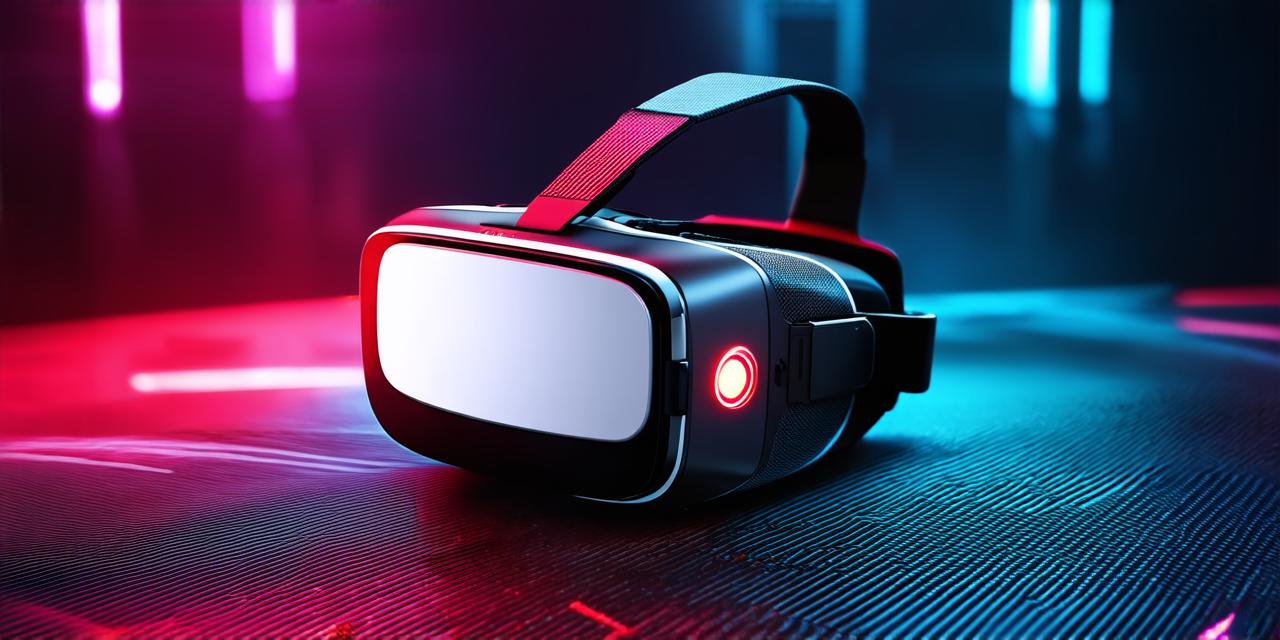1. Healthcare: Virtual Reality in Medicine
Virtual reality technology is transforming the healthcare industry by providing new ways for doctors and patients to interact with medical content. VR can be used for medical training, therapy, surgery, and more. For example, medical students can use VR simulations to practice surgical procedures, allowing them to gain hands-on experience without risking patient safety.
Additionally, VR can also be used in physical therapy to help patients recover from injuries or illnesses by providing immersive experiences that simulate real-world movements and environments. This technology has revolutionized the way doctors diagnose and treat patients, making healthcare more accessible, efficient, and effective.
2. Education: Virtual Reality for Learning
Virtual reality technology is revolutionizing education by providing new ways for students to learn and engage with digital content. With VR, students can explore historical events, visit museums and cultural landmarks, and even practice scientific experiments in a safe and controlled environment. Teachers can also use VR simulations to create interactive lessons that engage students and enhance their understanding of complex concepts.
This technology has transformed the way students learn, making education more engaging, interactive, and immersive.
- Real Estate: Virtual Tours and Training

Virtual reality technology is transforming the real estate industry by providing new ways for buyers, sellers, and agents to interact with properties. With VR, users can take virtual tours of properties from anywhere in the world, allowing them to experience a property as if they were really there.
Additionally, real estate agents can use VR simulations to train their clients on how to make informed decisions about properties, helping them to close more deals and increase their customer satisfaction.
This technology has revolutionized the way people buy and sell properties, making it easier, faster, and more convenient.
4. Retail: Virtual Product Demonstrations
Virtual reality technology is changing the way retailers showcase their products by providing new ways for customers to experience them in immersive environments. With VR, customers can virtually try on clothes, test out furniture in their homes, and even see how products would look in different lighting conditions and room settings.
This allows retailers to provide a more personalized shopping experience and increase customer satisfaction and loyalty. By using VR, retailers can create engaging and immersive environments that encourage customers to explore and interact with their products in new and exciting ways.
5. Gaming: Virtual Reality for Gamers
Virtual reality technology is transforming the gaming industry by providing new ways for players to experience immersive environments and engage with games in new and exciting ways. With VR, gamers can explore new worlds, engage in realistic combat simulations, and even play sports like basketball or soccer in virtual environments.
This allows game developers to create more engaging and immersive experiences that keep players coming back for more. By using VR, gamers can immerse themselves in the game world and become part of the action, creating a new level of interactivity and excitement.
6. Manufacturing: Virtual Reality for Training
Virtual reality technology is transforming the manufacturing industry by providing new ways for workers to learn and improve their skills. With VR, workers can simulate complex manufacturing processes in a safe and controlled environment, allowing them to gain hands-on experience without risking injury or damaging equipment.
Additionally, VR simulations can also be used to train workers on how to use new tools and machinery, helping to increase productivity and reduce errors. This technology has revolutionized the way people work in manufacturing, making it safer, more efficient, and more effective.
Conclusion: Virtual Reality Technology is Changing the World
Virtual reality technology is revolutionizing the way we interact with digital content and changing the landscape of various industries. From healthcare to retail, gaming to manufacturing, virtual reality technology is transforming the way we live, work, and play. As virtual reality technology continues to evolve, it will undoubtedly continue to have a significant impact on our society and culture, shaping the future in new and exciting ways.
The potential of virtual reality technology is vast and varied, and its impact on industries will only continue to grow as the technology advances and becomes more accessible.
